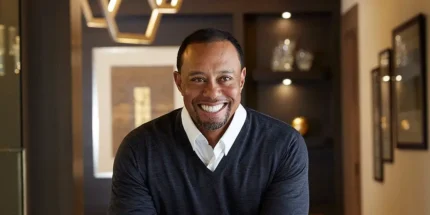
Griffin needs a coach who believes in him; Woods needs to believe in himself, not a coach.
Once the world’s foremost golfer, who made opponents quiver at the mere notion of competing against him, Woods has diminished into just another pretty good guy on a PGA Tour full of them.
His personal life unraveled and soon his health and game did, too. He’s gone through three swing coaches and now has added someone named Chris Como, a hardly renown swing instructor whose job apparently is harder than you think.
Woods has discarded admired swing coaches Butch Harmon, Hank Haney and Sean Foley over his 18-year-career. Haney said in a published report of Woods:
“He’s a hard student, and that’s not a negative. You would expect him to be. He’s Tiger Woods. A 36-handicapper listens. You don’t expect arguably the greatest player ever to just say tell me what to do. He’ll listen to himself the best.”
Which is the reason many thought Woods would coach himself. Who knows his swing better than him?
Above all, Woods’ troubles do not seem to be as technical as they are mental. There is the finest of lines in golf when it comes to those two elements, but think about it:
Woods has not been the same since his philandering ways were exposed and injuries befell him. Those two dynamics have combined to make Woods a pedestrian golfer.
On the personal front, he has been involved with Lindsay Vonn, which could mean he’s slowed down from his days of picking up waitresses. The injuries, however, have piled up and certainly have been a factor.
He had microdiscectomy surgery in March to correct a pinched nerve in his back, more back trouble in August and four knee procedures. It’s a wonder he can stand upright.
He will not play again for another two weeks, meaning he will have been recovering from the latest injury for three months. If he’s finally healthy, maybe he can find a level of consistency.
In the meantime, his head has been messed up. No way was he going to play well after his marriage troubles; the game requires too much singular thought for him to perform with a clear head and at peak efficiency. That now presumably settled, it’s about health.
And that’s about the mental, too, because it’s virtually impossible to conquer PGA courses and a dynamic field wondering if the next swing will trigger shooting pain in your knee or back.
That’s why Woods has hired Como. His expertise is in biomechanics, which means he will work on Woods to prevent injury, which will allow him to free his mind and go after it without concern of hurting something.
It’s a process that just might prove to be the move that gets Woods back to the top. It won’t be easy, though. Losing and underperforming gets into your head, too. And as much as he won before his troubles, he’s lost in the last six years.
The lingering mental effects of missing fairways and being unable to finish on Sundays surely will be an obstacle to overcome. Not with his swing, but with his mind.
He’s gone through the best swing coaches in the sport. Tiger Woods will return to being a force when he is totally healthy and believes his body can hold up to the rigors of his swing. That will bring the confidence he needs to play the way he can.
It may not produce enough for him to catch Jack Nicklaus’ 18 majors. But he will be able to realistically get off 14, which he has been stuck on ever since his personal life and health unraveled.


